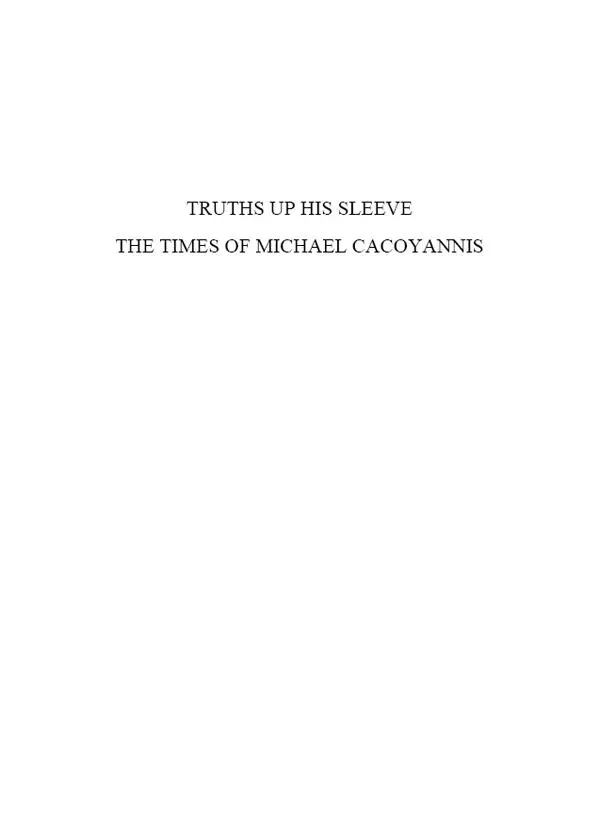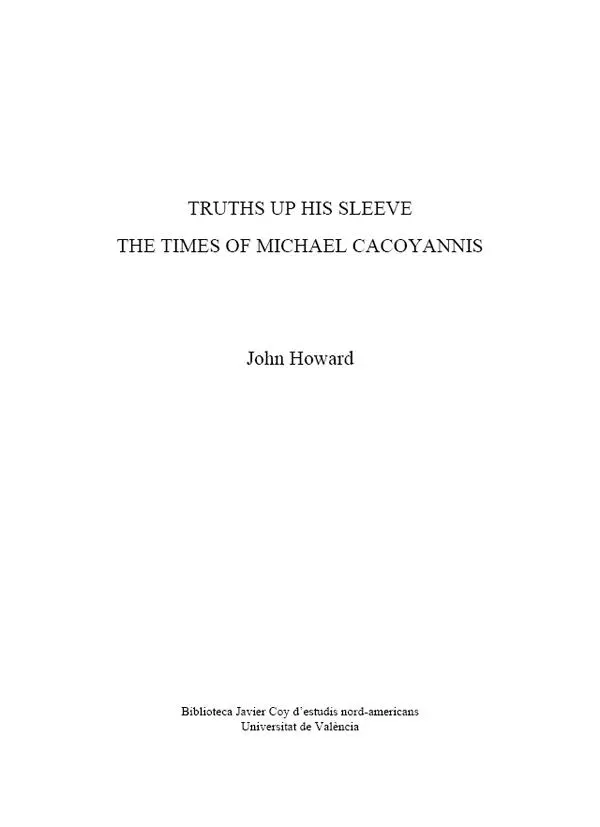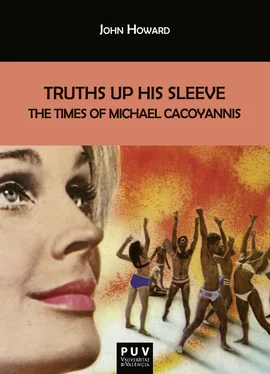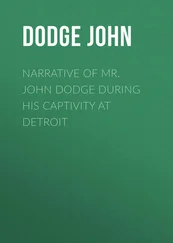
BIBLIOTECA JAVIER COY D’ESTUDIS NORD-AMERICANS
https://puv.uv.es/biblioteca-javier-coy-destudis-nord-americans.html
DIRECTORA
Carme Manuel
(Universitat de València)

Truths Up His Sleeve: The Times of Michael Cacoyannis
© John Howard
1ª edición de 2022
Reservados todos los derechos
Prohibida su reproducción total o parcial
ISBN: 978-84-9134-956-3 (papel)
ISBN: 978-84-9134-957-0 (ePub)
ISBN: 978-84-9134-958-7 (PDF)
Imagen de la cubierta: amb permís de Miranda Kenrick
Diseño de la cubierta: Celso Hernández de la Figuera
Publicacions de la Universitat de València
https://puv.uv.es
publicacions@uv.es
Edición digital
For Shotaro Yamamoto
There is no true theatre without language and style, nor any dramatic work which does not, like our classical drama and the Greek tragedians, involve human fate in all its simplicity and grandeur. Without claiming to equal them, these are at least the models to set oneself .
Albert Camus
Tell all the truth but tell it slant –
Emily Dickinson
Contents
PROLOGUE Artists Need No Permits
PART I WILLFUL COMING OF AGE
CHAPTER 1 Colonial Family Portraits
CHAPTER 2 Metropolitan Broadcast Performances
CHAPTER 3 Global Antigay Proceedings
PART II FILMING THE GAYEST SORT
CHAPTER 4 The Modern Greece Quintet
CHAPTER 5 Devils, Gods, and Wastrels
CHAPTER 6 Zorba the Great, Michael the Greek
CHAPTER 7 Hollywood’s Biggest Bomb
PART III RESTAGING RESISTANCE
CHAPTER 8 On the Ancients, In Exile
CHAPTER 9 Coups and Clerics
CHAPTER 10 The Long Farewell
EPILOGUE Laying Queer Foundations
APPENDIX A Filmography
APPENDIX B Major Stage Productions
PRIMARY SOURCES
NOTES
ACKNOWLEDGMENTS
PROLOGUE
Artists Need No Permits
On a warm evening in 1955, in Athens’ hip cafe district Plaka, two plain-clothes policemen approached three dubious characters straight out of central casting: all outsiders, all a bit shifty. One, a quiet German Jew whose rare words suggested impeccable English, stepped away from his large camera and listened. Another, an animated Lebanese man, paced back and forth, while the third, the obvious ringleader, waved his arms and professed their complete and utter innocence in fluent long-winded Greek with the hint of a Cypriot dialect. What had they done? Who was their accuser?
Crowds gathered. The noise made it difficult to be heard or understood. The police demanded a trip to the precinct, where charges would be spelled out. The trio bid farewell to their associates, a stylish assortment of women and men, insisting it was all a mistake, they would be right back. Then long hours passed with no word from them.
“Escorted to the local police station,” the suspects confirmed their names and occupations: director Michael, cameraman Walter, and manager Anis. They provided additional personal details and answered a few more questions. So, policemen surmised, the report they received was true. Each and every one of these men was a foreigner, as sworn in a complaint by an unemployed technician, the disgruntled civil war machine-gunner known as Bac-Bac. Furthermore, as the undercover officers witnessed firsthand, the three men and their associates were at work in the city, outdoors on the streets. Working without papers, the trio thus had contravened immigration restrictions. They were illegal aliens. Officers arrested them. 1
As Walter later explained, “We were stripped of our belongings and taken to the cells, but before the doors were actually slammed on us, we were reprieved. Michael’s lawyer arrived.” Tense protracted negotiations yielded one slight concession. The three men would have to remain in custody until a hearing tomorrow, but as a “compromise,” they could “spend the night on makeshift beds … instead of in the cells.” 2
The next day, the judge was rendered speechless as Michael’s attorney waxed eloquent about the grave injustice his clients suffered. For shame! Yes, it had to be admitted, they looked like a motley crew. But they understandably were disheveled after their night of degradation, tossing and turning on cots. More to the point, their arrest and detention represented a grievous misapplication of the law. True, in general, laborers from beyond Greek shores were expected to follow standard procedures, apply for the right to gainful employment, and accept work assignments only with permission of the authorities, all duly documented. But these were not ordinary workers. Nor were they mere moviemakers. These men were artists , he stated with a flourish. And artists need no permits! “The ploy seemed to work,” Walter concluded. “We were all able to get on with the film.” 3
As this book shows, being artistic—as with being musical or theatrical—often connoted as it paradoxically covered over being queer. In realms of twentieth century cultural production, queerness in its broadest sense referenced people of outcast races, genders, and sexualities given to promiscuous practices of cosmopolitan mixing and making. 4
*
Greece’s greatest filmmaker was neither reared in Greece nor trained in film. Born and schooled in Cyprus, Michael Cacoyannis moved to London in 1938 at the age of seventeen to study law, on the orders of his father, a knight of the British realm. Duty bound, Michael graduated and became a barrister in what was still the world’s leading global city and vaunted imperial metropole. He found work at the BBC Empire Service, running its new Cyprus Section, delivering innovative wartime content to radio audiences across the island colony. At last disregarding his father’s commands and indulging his own wildest fantasies, Michael abandoned these respectable professions to train as an actor at the Central School and as a stage director at the Old Vic School, under the long shadow of Laurence Olivier.
Only in 1953, at the age of thirty-two, did Michael migrate to Athens and start making motion pictures, first on tight fixed budgets, then with limited contingent support from Hollywood. Sixteen films later—along with numerous critically acclaimed stage productions from the dramatic and operatic repertoires, both classical and modern, from Spoleto to the Met, on and off Broadway—Cacoyannis would be recognized around the world as one of Europe’s most inventive auteur directors. Why then is he not the subject of multiple biographies, as say Hitchcock? Why don’t the libraries devote whole shelves if not sections to his work and his interpreters, as with Kubrick? Why doesn’t his name trip off the tongue of every eager young cineaste across the globe? To be sure, Hitchcock made three times as many films and much more television, though Kubrick made fewer films and next to no theatre. What other factors were at work in achieving canonical if not auteur status?
Why would Cacoyannis remain so underappreciated over time, even as he elicited stellar performances from the era’s best actors? Jane Alexander. Anne Bancroft. Alan Bates. Candice Bergen. Geneviève Bujold. Frances de la Tour. Colleen Dewhurst. Katharine Hepburn. Lila Kedrova. Melina Mercouri. Irene Papas. Anthony Quinn. Charlotte Rampling. Vanessa Redgrave. Sam Wanamaker. Perhaps because they were predominantly women, in powerful roles that challenged patriarchy and militarism? Crucially: Why was the pinnacle of success—three Oscars and global adoration for Zorba the Greek in the mid-1960s—followed straightaway by the depths of despair? Why was his fantastic follow-up feature, with a cast of thousands, met with unrelenting vitriolic contempt? Why can that “bomb” be reappraised only now, after his death, as—like Faulkner’s The Sound and The Fury —its author’s “greatest failure”? Why did Michael’s devastating career low, exacerbated by seven years’ political exile, seem to foreclose a place among the immortals? (Or did it?) 5
Читать дальше













